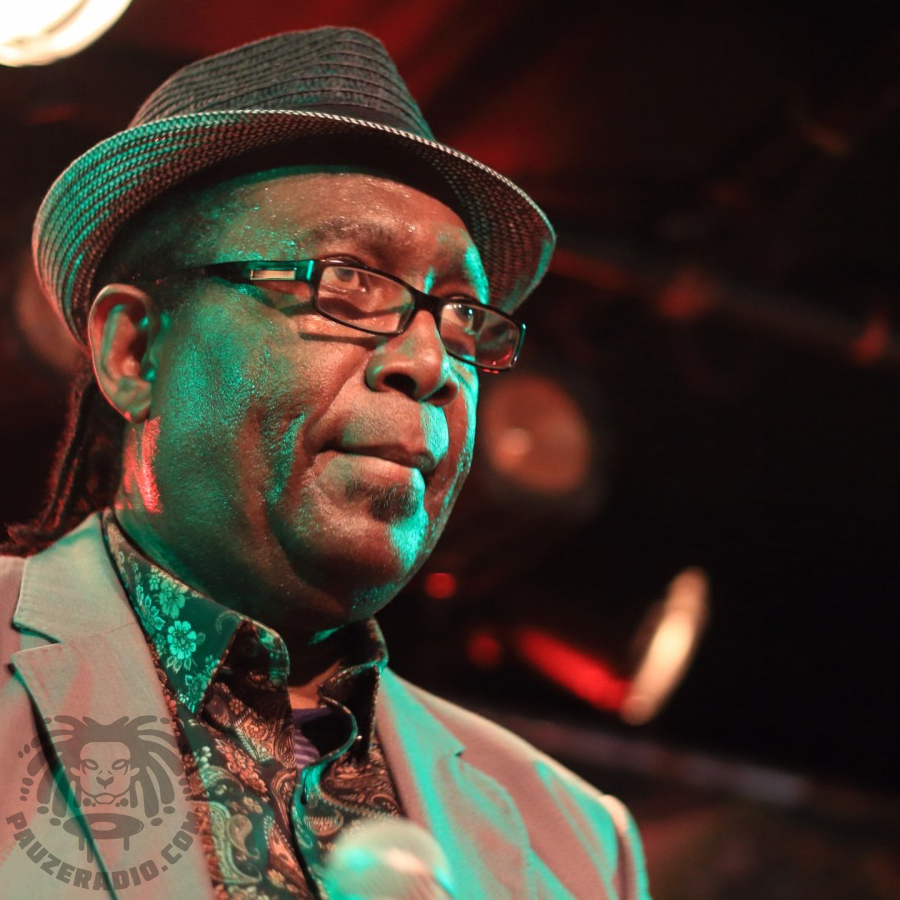
Al Campbell
Al Campbell Biography:
Al Campbell, a towering figure in the world of reggae music, was born in Kingston, Jamaica, in 1954. From his early beginnings in the vibrant musical landscape of Jamaica, Campbell rose to become one of the most revered voices in reggae, leaving an indelible mark on the genre with his soulful vocals and timeless melodies.
Growing up in the heart of Kingston, Campbell was immersed in the sounds of reggae from an early age. Influenced by the greats such as Bob Marley, Dennis Brown, and John Holt, he began honing his craft as a singer-songwriter, drawing inspiration from the struggles and triumphs of everyday life in Jamaica.
Al Campbell started his singing career in church, where his father was a preacher, and Campbell would sing to raise funds. He went to school with Lloyd James (aka Prince Jammy) and formed a vocal group with friends as a teenager, called The Thrillers, who recorded in the late 1960s for Studio One.
Campbell’s breakthrough came in the 1970s when he caught the attention of producers like Coxsone Dodd and Bunny Lee. His smooth, emotive voice and impeccable sense of rhythm set him apart, earning him a reputation as one of the most promising talents in the reggae scene. Hits like “Gee Baby” and “No More Running” catapulted him to stardom, showcasing his ability to infuse traditional reggae rhythms with elements of soul and R&B.
After briefly joining up with Freddie McGregor and Ernest Wilson, Al Campbell went on to work with Prince Lincoln Thompson’s Royal Rasses, and the Mighty Cloud band. Campbell then embarked on a solo career (also contributing vocals to two Heptones albums), and was a popular roots reggae singer during the 1970s, recording for producers such as Phil Pratt, Bunny Lee, and Joe Gibbs, and recorded at Lee Perry’s Black Ark studio. His “Gee Baby” was a big hit in 1975 in both Jamaica and the United Kingdom.
Throughout the 1980s and 1990s, Campbell continued to build on his success, releasing a string of critically acclaimed albums and singles. His collaborations with legendary producers such as Sly and Robbie and King Jammy further solidified his place in reggae history, earning him accolades and admiration from fans and peers alike.
He adapted successfully to the early dancehall and lovers rock styles in the late 1970s and 1980s, working with producers such as Linval Thompson. Campbell’s recording of “Late Night Blues” (1980) became a staple of blues parties. Campbell performed with the Stur-Gav sound system in the early 1980s. More recently he has recorded for King Jammy, Philip “Fatis” Burrell, and Mafia & Fluxy. In 1997, he joined Cornell Campbell and Jimmy Riley in a new version of The Uniques, the group releasing a self-titled album in 1999.
But Campbell’s contributions to reggae music extend beyond his remarkable vocal talents. He was also a prolific songwriter, penning lyrics that spoke to the struggles and aspirations of the Jamaican people. From love songs to social commentary, his music touched on a wide range of themes, resonating with audiences around the world.
Despite facing numerous challenges throughout his career, including struggles with addiction and personal loss, Campbell’s passion for music never waned. He remained dedicated to his craft, using his music as a means of self-expression and healing. Today, his legacy lives on through his timeless recordings and the countless artists he has inspired.
Al Campbell’s impact on reggae music is immeasurable, his soulful voice and profound lyrics continue to resonate with audiences around the world, reminding us of the power of music to transcend barriers and unite us in our shared humanity.
Do you need a biography, review or press release? Book our services for your latest release here.
Al Campbell Biography by Gav Pauze / Pauzeradio PR Services (8th February 2024)




